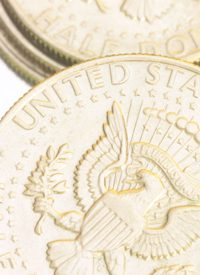
In addition to possibly making precious-metal coin lawful money for intrastate and government transactions, the bill would exempt gold and silver from state sales, income, and capital-gains taxes. The legislation also states that individuals cannot be compelled to accept precious metals instead of Federal Reserve Notes. It was approved in the House with a vote of 47 to 26.
According to the bill’s summary, it “recognizes gold and silver coins that are issued by the federal government as legal tender in the state and exempts the exchange of the coins from certain types of state tax liability.” Under the measure, Utah citizens would be able to pay their taxes with precious metals at market value, as opposed to the face value used by the federal government, which is far less than the price of the actual gold or silver in the coins.
The legislation would also mandate that the Revenue and Taxation Committee “study the possibility of establishing an alternative form of legal tender” and “recommend whether an alternative form of legal tender should be established.” Those recommendations would be considered in the 2012 legislative session.
Earlier this year, the Utah state legislature was considering a similar proposal known as the “Utah Sound Money Act.” That bill would have recognized gold and silver coins issued by some trustworthy foreign governments as well. It would have gone even further toward normalizing trade in precious metals than the “Legal Tender Act,” and so attracted a broad coalition of prominent backers from across the country including long-time sound-money advocate U.S. Rep. Ron Paul (R-Texas).
“To me, the best road back to a really well-functioning monetary system is through the states, and through the states exercising their monetary power as articulated in Article I, Section 10 of the [U.S.] Constitution to make nothing but gold and silver coin a payment in tender of debts,” said Utah attorney and businessman Larry Hilton, who authored the original bill and has been a key backer of state-based sound-money legislation in Utah.
He told The New American earlier this year in an interview that, “If each of the states — or even just a small handful — do what we’re contemplating here in Utah, I think it would have a very positive impact on the dollar itself.” It would also bring countless other benefits ushered in by competition and the preservation of purchasing power, he added.
More than a dozen other states have introduced like-minded measures across the United States as the Federal Reserve cartel continues creating new money at a record pace and the fiat dollar continues its rapid loss of purchasing power. Lawmakers in Virginia, for example, were considering a bill earlier this year to officially study the adoption of alternative currencies such as gold and silver in case of an increasingly likely hyperinflationary scenario and a total breakdown of the Federal Reserve System.
State legislators in Utah, however, recognized the problem and decided to take preventative measures early on. “This is a step in preparedness; a step in security that allows us to be able to help hold up our economy as the dollar continues to shrink,” the Utah bill’s chief House sponsor, Republican Rep. Brad Galvez, told the Salt Lake Tribune.
Another supporter of the legislation, Rep. Ken Ivory, told the paper that the measure was “a way for us to preserve for the citizens of Utah … the purchasing power of the money they hold.” As an example, he cited the increased value in real terms of a 1960s half-dollar silver coin. The Federal Reserve’s paper currency, meanwhile, has lost well over 90 percent of its value since the central bank was established in 1913.
"People sense that in the era of quantitative easing and zero interest rates, something has gone haywire with our monetary policy," policy director Jeffrey Bell of the group American Principles in Action told Fox News. "If one state recognizes gold as a valid currency, I think it would embolden people not just in other states but in Washington." The organization played a role in drafting and supporting the bill.
Another group, known as Utah Sound Money, is also lobbying hard in favor of the legislation. “Although the current version of the bill has been [pared] back from the original draft, it is, nevertheless, critically important to take this first step towards the restoration of Sound Money as a viable option in our society,” the group said in a message to supporters urging them to back the new measure.
“A State's sovereign power to declare gold and silver coin a legal tender is one of only two express reservations of state power specifically included in the U.S. Constitution, as originally ratified,” it said. “The Legal Tender Act is an important exercise of that power which our nation's founders were careful to reserve to the states.” The American Constitution makes clear that no state shall make anything but gold and silver a tender in payment of debts.
A vote is expected in the state Senate sometime this week, and if approved, the legislation would require the Governor’s signature to became law. Opponents have expressed concern that the bill could lead to slightly decreased tax revenues (about $250,000 for 2012) if gold and silver coins were exempted from taxation. But supporters counter that they should not be penalized for choosing to save and do business with sound currency instead of failing Federal Reserve Notes.
Analysts predict that as the U.S. dollar continues its downward spiral, more and more states will begin making back-up plans to safeguard their economies. A wave of state legislatures reasserting their sovereignty over the federal government and promoting the concept of nullification will also likely contribute to the state-based sound-money trend. Silver was breaking new price records on March 7, in large part due to the diminishing value of the U.S. dollar.
Prominent voices in the United States, international institutions, and foreign countries are hoping to use the emerging dollar crisis as an opportunity to create a world currency controlled by an international central bank. How successful they will be probably depends in large measure on how — and how quickly — state legislatures react to the problem.



